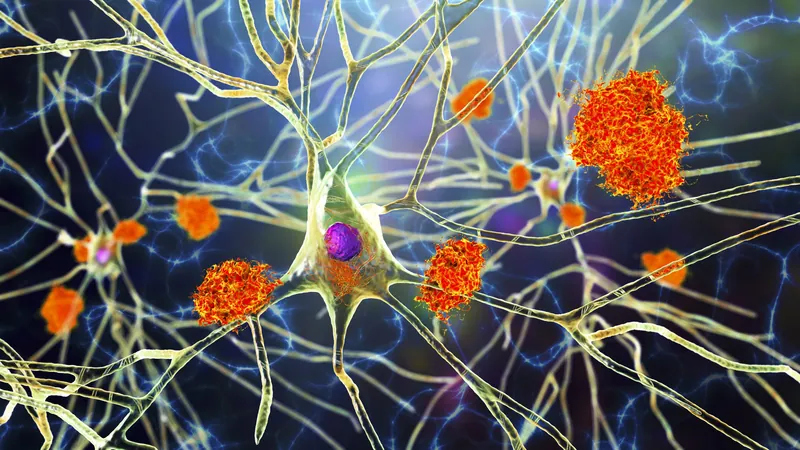
Shocking Connection: Can Herpes Virus Contribute to Alzheimer’s Disease?
2025-01-02
Author: Mei
A groundbreaking study from researchers at the University of Pittsburgh has reignited discussions about the potential role of viruses in neurodegenerative diseases, particularly targeting the notorious herpes simplex virus type 1 (HSV-1) as a major player in the development of Alzheimer’s disease (AD). This new evidence could change everything we know about how infections impact brain health!
For years, scientists have noted that various viruses may be implicated in the progression of neurodegenerative disorders. Recent findings, published in the esteemed journal Cell Reports, show that HSV-1 might not only be linked to Alzheimer’s but could also interact with tau protein in complex ways that initially offer protection but later lead to severe brain damage.
Dr. Or Shemesh, an assistant professor at the University of Pittsburgh’s Department of Ophthalmology, has led the charge in this compelling research. The study articulated the undeniable connections between Alzheimer’s pathology—characterized by the accumulation of β-amyloid plaques and hyperphosphorylated tau—and infectious agents like HSV-1. The clinical implications of this association are staggering, raising questions about how viral infections could serve as triggers for Alzheimer’s onset.
Employing advanced methodologies such as metagenomics and mass spectrometry, the researchers identified proteins related to HSV-1 in human brain samples as Alzheimer’s progressed. Notably, the presence of the herpesvirus protein known as ICP27 skyrocketed with the severity of the disease, illuminating a significant correlation to tau pathology.
Furthermore, researchers conducted experiments using miniature human brain models grown in Petri dishes. They found that HSV-1 infection was able to elevate tau phosphorylation, an indication that the virus might manipulate tau protein levels—a protective mechanism that appears to diminish following neuronal death caused by the virus.
Dr. Shemesh’s insights from this research challenge traditional perceptions of tau as merely detrimental. 'Our study emphasizes that tau may initially act as part of the brain’s immune defense against infections,' he stated. This revelation underscores the intricate relationship between infectious agents, the body’s immune responses, and the relentless progression of neurodegenerative diseases.
The implications of these findings extend far beyond Alzheimer’s disease. The Pittsburgh team aims to uncover whether similar viral mechanisms might also contribute to other neurodegenerative disorders, including Parkinson’s disease and amyotrophic lateral sclerosis (ALS). As research unfolds, future therapeutic strategies targeting viral proteins could offer innovative pathways to treat or even prevent Alzheimer’s disease and related conditions.
Stay tuned as we track how this potentially game-changing research could impact both science and public health, opening doors to a new frontier in our understanding of neurodegeneration and infectious diseases!


 Brasil (PT)
Brasil (PT)
 Canada (EN)
Canada (EN)
 Chile (ES)
Chile (ES)
 Česko (CS)
Česko (CS)
 대한민국 (KO)
대한민국 (KO)
 España (ES)
España (ES)
 France (FR)
France (FR)
 Hong Kong (EN)
Hong Kong (EN)
 Italia (IT)
Italia (IT)
 日本 (JA)
日本 (JA)
 Magyarország (HU)
Magyarország (HU)
 Norge (NO)
Norge (NO)
 Polska (PL)
Polska (PL)
 Schweiz (DE)
Schweiz (DE)
 Singapore (EN)
Singapore (EN)
 Sverige (SV)
Sverige (SV)
 Suomi (FI)
Suomi (FI)
 Türkiye (TR)
Türkiye (TR)
 الإمارات العربية المتحدة (AR)
الإمارات العربية المتحدة (AR)